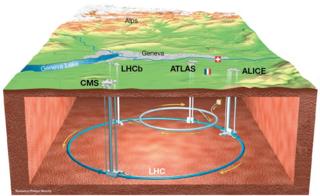GENEVA (Reuters) - After a year's delay, scientists at the world's biggest accelerator have restarted an experiment to recreate "Big Bang" conditions that had sparked suggestions the earth would be sucked in by millions of black holes.
Scientists at the European Organization for Nuclear Research (CERN) have established circulating particle beams in both directions in the underground Large Hadron Collider, a step that is already beyond where the experiment stalled during a first attempt in September 2008, CERN spokesman James Gillies said.
The high-profile experiment, through which tiny particles are smashed in a bid to learn more about the birth of the universe, failed just nine days after it was launched due to a technical problem that took longer than expected to fix.
"We are further advanced now than where we were after five days of experiment last year," said CERN's Director for Accelerators Steve Myers, saying the extra year had allowed researchers to upgrade instrumentations and computer software.
Big Bang experiment advancing fast | U.S. | Reuters
Scientists at the European Organization for Nuclear Research (CERN) have established circulating particle beams in both directions in the underground Large Hadron Collider, a step that is already beyond where the experiment stalled during a first attempt in September 2008, CERN spokesman James Gillies said.
The high-profile experiment, through which tiny particles are smashed in a bid to learn more about the birth of the universe, failed just nine days after it was launched due to a technical problem that took longer than expected to fix.
"We are further advanced now than where we were after five days of experiment last year," said CERN's Director for Accelerators Steve Myers, saying the extra year had allowed researchers to upgrade instrumentations and computer software.
Big Bang experiment advancing fast | U.S. | Reuters


